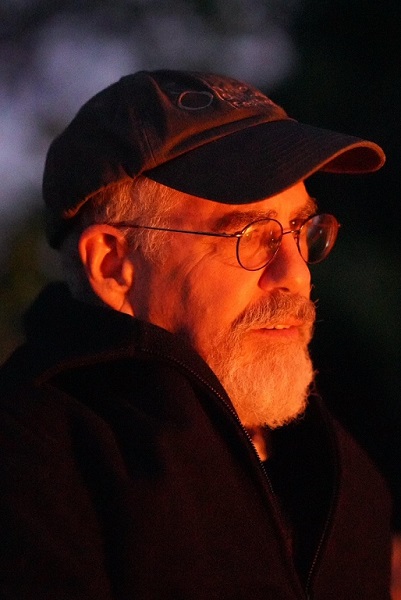
David Holper
Good Morning, Everyone,
Our poet today, David Holper, has an unusually interesting background. He lives in Eureka, California, where he served as the City of Eureka’s inaugural Poet Laureate from August 2019-August 2021. He has published three collections of poetry, including Language Lessons: A Linguistic Hejira (Deeper Magic Press, 2023), from which today’s poems have been chosen. Other books have been The Bridge (Sequoia Song Publications) and 64 Questions (March Street Press). His poems have appeared in many literary journals and anthologies, and have won numerous competitions, including the Synkroniciti award for best poem in its September 2023 issue; second place in relationships for Write from the Heart Anthology 2023; the Barbara Curiel Award for his poem “Depaysement” in Toyon 2018; and the Jodi Stutz from Toyon 2017 for his poem “Cana de Azucar.” Additionally, he has been nominated for a Pushcart by Relief Journal for a poem called “Doubt.”
He is also a writer of fiction, which has appeared in various quarterlies, including Grand Street, the New Virginia Review, and Callaloo.
It’s my pleasure to share the following three poems from his latest book, Language Lessons: A Linguistic Hejira:
Vade Mecum
Perhaps a book, discovered you
when you were young,
found you hidden somewhere
searching in the neglected alcoves
of some library. Perhaps,
like a dear friend, its pages opened a way
where before there seemed to be
only a wall. If so, count yourself among the blessed.
Such treasures remind us of the better self
living within us, only waiting to be checked out.
Vade Mecum (Latin) means “go with me.” To be a vade mecum, David Holper tells us, is the ideal to which all literature aspires.
Hygge
Often it is the simplest pleasures
that are simply the best; a funny joke
washed down with a cold beer,
a hug from a dear friend,
a story you have never heard
explaining something you’d always wondered.
From such unassuming elements, magic unfolds
between friends. Into this incantation
wrap yourself, so the spell
cannot be broken.
Hygge, the poet reminds us, is the Danish ritual of enjoying life’s simple pleasures: friends, family, graciousness.
Gattara
You know this story
in the news
they are reporting
that when the old lady died,
they found 100 cats in her house — all well fed,
strays, every one
iving in the lap of luxury.
Don’t be jealous, if in her will
she left her millions
to the mangy lot of them. Perhaps
you were a stray once, too
and understand what it is to be picked
by the scruff and saved.
Gattara ( Italian, noun): an elderly woman who cares for stray cats.
